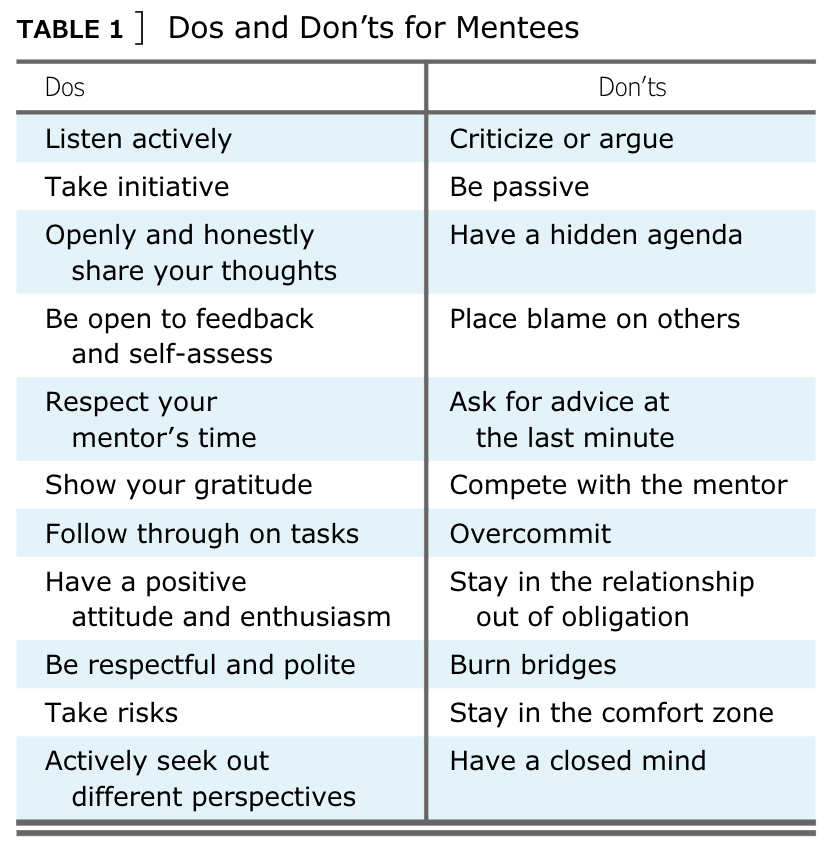Key Takeaways to Working With a Mentor
By: Vanessa Claude
April 28, 2018
What you should know from “Working With a Mentor: Effective Strategies During Fellowship and Early Career”
Beginning your career in the medical field can feel daunting with the amount of work and guidance you want and need. Finding a mentor, or multiple mentors, can help you during your fellowship and beyond with how to maintain a good work-life balance, taking advantage of new opportunities, and more. Here are key takeaways from the article “Working With a Mentor: Effective Strategies During Fellowship and Early Career” in this month’s journal CHEST® to help you in your mentorship journey.
1. Finding a Mentor or Mentors
It can be difficult finding a good mentor who is well-established, competent, sincere, and able to open doors for their mentee. Before finding and approaching potential mentors, there are a few things you should figure out first:
- What are your needs?
- What are your goals?
- How do you best communicate?
- And, what, if any, personal preferences do you have on the type of mentor you’d like?
Consider people you know before getting additional recommendations on mentors from your peers or colleagues. When considering a potential mentor, initially asking for advice or discussing their availability or experience for mentorship can be an important factor in choosing if that person may be a fit for you. Once a relationship is established, sharing your goals, needs, and setting guidelines in the beginning can help keep communication lines clear.
2. Mentoring Networks
With all the roles that a mentor plays and the varying needs of a mentee, it’s not uncommon for a mentee to have more than one mentor to fulfill all their needs, or vice versa, with a mentor having multiple mentees. Having a network of mentors provides a benefit through being “exposed to a variety of strengths, styles, opinions, and experiences.” You may even want to consider mentorship with one of your peers as a way for support when sharing and collaborating on mutual experiences.
3. Role of the Mentee
Being a mentee is not about just being a sponge to all the knowledge a mentor can share. As a mentee, you should be an active participant and drive the relationship. While a willingness to learn and improve is needed, accepting and respectfully responding to feedback, whether positive or constructive, is necessary.
Here are a few mentee dos and don’ts:

Source: Moores, Lisa K. et al. Working with a mentor. Chest. 2017;153(4):801.
4. Establishing Boundaries—How to Say No
Learning when and how to say no can be difficult. There’s pressure for a mentee to do it all and say yes to multiple tasks, but don’t overcommit to the amount of tasks you can comfortably take on. Find out what opportunities are truly beneficial to you and fit into your work-life balance, and don’t be afraid that saying no to your mentor means they won’t offer other and/or better-suited opportunities.
5. Evaluating the Mentoring Relationship
As a mentee, you should always be evaluating your mentoring relationship before and during the mentorship with potential mentors or current mentors. Evaluation and feedback is important in the growth and success of a mentor-mentee relationship.
6. The Difficult or Failed Relationship
With the growth of a mentoring relationship, sometimes your needs may change and no longer fit with a current mentor. It’s OK to end a successful mentorship as you become more independent or choose to seek a new mentor for different needs. It is also important and acceptable to move on if a mentoring relationship is dysfunctional, toxic, or just plain not working out. Respectfully and graciously communicate with your mentor why you’re moving on for an amicable split.
Interested in learning more details on how to best work with a mentor? Read the full article.